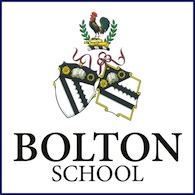 Government announced this week the creation of a national centre for Modern Foreign Languages, providing a catalyst and engine room for 9 regional hub schools. The nearest to Bolton is Archbishop Cranmer in Preston and many Bolton Schools will look forward to promoting languages in the North West with them. For anyone interested in education the first reaction must be to welcome this initiative. However, there are just a few thoughts worth deliberating as it gets started.
Government announced this week the creation of a national centre for Modern Foreign Languages, providing a catalyst and engine room for 9 regional hub schools. The nearest to Bolton is Archbishop Cranmer in Preston and many Bolton Schools will look forward to promoting languages in the North West with them. For anyone interested in education the first reaction must be to welcome this initiative. However, there are just a few thoughts worth deliberating as it gets started.
The first is that in good measure the situation with numbers studying Modern Foreign Languages is one of the systems own making. There have been several years of equivocation about whether a language GCSE was essential; there have been too many years during which both GCSE and A level exams at that level have been too difficult, with even the best failing to get top marks, alongside some structural issues with marking and grading that has made getting the top grades tricky as well. Recent changes have made all this more difficult in some ways, although there has been action on grading which may make a difference. So, things will not get as good as we would wish them to be without attention to how the subjects are examined.
Secondly, there is a very serious issue of teacher supply, partly because of those years when students were not coming through to University having studied languages at school. There has been action here as well, most notably the National Modern Foreign Languages Teacher Training scheme, a collaboration between state and independent schools aimed at increasing teacher numbers, and of which Bolton School is the north west base. This will make a difference and I hope that it is properly connected with the national centre, rather than a parallel initiative.
That lack of connection may also be evident in the disjunct between the Government rhetoric in terms of partnership between state and independent schools and the notable lack of asking for engagement with this national scheme, perhaps especially odd as a substantial fraction of language teaching expertise that exists must exist in independent schools. We will join in and do our best, as we always do, but a little planning might have made things so much better.
It is also worth noting that not all languages face the same challenges – Spanish is probably better than French for numbers and German is the one in real decline. There will be different answers needed for those different subjects.
Finally, the proposal has great resonance for me with the Science Centre at York and regional hubs, which I was much involved with at one stage. I would argue that those regional hubs never did get traction, although the national centre did. I do hope that there is enough memory in Government to learn lessons, rather than repeat mistakes.
The initiative is a good one, it is certainly better to do something rather than nothing, but let us hope there is a period of time to collect some wise planning to build on the past not reinvent it, to ensure synergies between initiatives rather than parallel tracks and really move language teaching along for young people.

Leave a Reply